Here’s one plan for stopping forever chemicals in Massachusetts. Where does it stand?
Cape Cod Times
Heather McCarron
July 25, 2023
So-called “forever chemicals” — collectively known scientifically as per- and polyfluoroalkyl substances, or PFAS — are a “big, big challenging” problem because they are basically anywhere you look, state Sen. Julian Cyr, D-Truro, said.
But he’s not letting the scale of the issue stop him from taking it on. Cyr, along with state Rep. Kate Hogan, D-Stow, are the lead proponents of legislation that aims to address existing PFAS contamination in Massachusetts and to ban the sale of PFAS-containing products in the state.
Cyr this week spoke with members of Sierra Cape Cod, a chapter of the national Sierra Club environmental organization, about the legislation and where it’s at now. His presentation was part of the regional chapter’s virtual speaker series, Cape Cod Tuesday Talks.
He said the bill, which was introduced earlier this year, is presently under review by the Joint Committee on Public Health, which he chairs. That panel just held a public hearing on the bill in June.
“I expect it’s going to receive a favorable report,” Cyr said, though he noted the committee still has some work to do on the proposal, particularly with addressing PFAS in biosolid materials from wastewater treatment that’s used in fertilizers — an issue because farms end up having PFAS contamination from the application of the fertilizers.
Cyr said there’s been a lot of support for the bill in both chambers of the state Legislature.
“I’m hopeful this is something we get done this session,” he said.
Here’s what the bill hopes to accomplish.
Bill S.1356/H.2197 “An Act to Protect Massachusetts Public Health from PFAS” specifically sets deadlines for phasing out PFAS in consumer products sold in Massachusetts and establishes a trust fund to help communities address contamination in soil, groundwater and drinking water.
What are PFAS?
According to the Centers for Disease Control and Prevention, PFAS are “man-made chemicals that have been used in industry and consumer products worldwide since the 1940s” to make products such as nonstick cookware, water-repellent clothing, stain- and wrinkle-resistant fabrics and carpets, some cosmetics, some firefighting foams and products that resist grease, water and oil.
PFAS can have cumulative negative effects on human health, such as “decreased fertility or increased high blood pressure in pregnant women, developmental effects or delays in children, including low birth weight, accelerated puberty, bone variations, or behavioral changes and increased risk of some cancers,” according to the U.S. Environmental Protection Agency.

Cape Cod is particularly vulnerable to PFAS.
Cyr said that, given the Cape’s geology and sandy soil, and its reliance on a sole source aquifer, the environment here is “particularly vulnerable to environmental contamination of any kind.”
PFAS contamination has been identified in a number of places across the Cape and Massachusetts, he pointed out. Most notable on the Cape are the former Barnstable County Fire Training Academy, Cape Cod Gateway Airport, and Joint Base Cape Cod.
“The ubiquity of these forever chemicals means that it’s a real steep challenge here,” Cyr said.
The good news, he said, is that “in Massachusetts, we’ve been a bit more in the vanguard of looking at PFAS, particularly in water supplies,” and the state is also among the trailblazers looking at banning the sale of PFAS-containing products.
Massachusetts was one of the first states — now one of 10 states — to adopt PFAS limitations for drinking water (20 parts per trillion) and to require testing for PFAS in public drinking water supplies.
More about the bill: Prohibiting PFAS in food packaging, firefighting
A component of the bill prohibits sale of food packaging and certain products with intentionally added PFAS in Massachusetts by 2030. Sooner, by 2026, Cyr said, “we phase out the use of PFAS in firefighter turnout gear. We also prohibit the use of firefighting foam that contains PFAS, either in training or in response.”
While he acknowledged the legislation doesn’t stop people from buying PFAS-containing products online or from states without a ban, the expectation is that as more states ban PFAS, “you’re going to see that effectively lead businesses to figure out how they eliminate the use of PFAS in their products.”
Also proposed: Amending water discharge permits to monitor for PFAS, and creating guidelines for private wells.
The bill will include some exemptions since there are industrial applications of PFAS “that are essential” and “can be applied without any effect on human health if they’re disposed of correctly,” Cyr said, citing “a number of medical devices” as examples.
‘Festering sites and expanding plumes.’ Remediation sought for Cape Cod PFAS contamination sites.
Sierra Cape Cod Chairman Chris Powicki said the organization is a “strong supporter” of the PFAS legislation, particularly the bans and efforts to prioritize early expenditures of settlement funds from PFAS manufacturers.
“We remain very concerned about the continuing risks posed to state-designated environmental justice communities by PFAS contamination at Cape Cod Gateway Airport, the former Barnstable County Fire Training Academy, and Joint Base Cod Cod,” he said.
The organization would like to see remediation efforts at these sites accelerated, Powicki said, emphasizing that “in areas served by a sole-source aquifer, relying on capping and continuous, costly water treatment at supply wells while waiting for settlement funds is not a sound or equitable solution for festering sites and expanding plumes.”
Heather McCarron writes about climate change, environment, energy, science and the natural world. Reach her at hmccarron@capecodonline.com, or follow her on Twitter @HMcCarron_CCT
